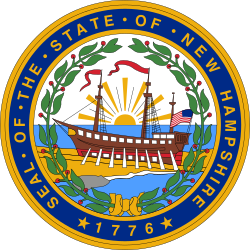| |||||||||||||||||
| |||||||||||||||||
 County results Harriman: 50–60% 60–70% Sinclair: 50–60% | |||||||||||||||||
| |||||||||||||||||
| Elections in New Hampshire |
|---|
 |
The 1867 New Hampshire gubernatorial election was held on March 12, 1867, in order to elect the Governor of New Hampshire. Republican nominee and Brevet Brigadier General Walter Harriman defeated Democratic nominee John G. Sinclair. [1]

